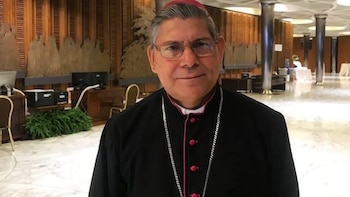
After the announcement of the measure to restrict the man barbecue in the city of Bogotá, controversy has erupted, however, in other cities the restriction has also been applied and the balance has so far different interpretations, as happens in the city of Santiago de Cali, where both the administration and some analysts consider the success of this ban.
Regarding the subject, different doubts arise about the affectivity of this conditioning factor, since clearly, this generated opposition reactions taking into account that many motorcyclists are affected because, despite the informality, they resort to using this vehicle as a transport service, since it has become a fundamental part of its work system.
Regarding the subject, the mayor of Cali, Jorge Iván Ospina, said: “In Cali there is the restriction of the man barbecue, the important thing is to create culture, in that order the motorcyclists themselves demand it, and although with a social outbreak and pandemic it has relaxed, we insist and we must continue to make its benefits visible”.
According to the local president, the inclusion of the man barbecue would change the perception of security and considerably increase criminal acts, Ospina said: “We have the ban and there is a culture of not having a male barbecue in the city. My approach is that it is an agreement between citizens, the man barbecue can't have it right now because it is a circumstance that would aggravate our perceptions and objectivity of insecurity.”
The newspaper El País consulted various authorities in the capital of Valle del Cauca and specialists on the subject, regarding the effect of this measure, since some point out that crime does not have any reduction at the time of its implementation, in addition to this, they consider that direct stigmatization is generated against motorcyclists, since crime is independent of the vehicle and whether the barbecue is male or female.
For her part, Paola Sánchez, president of the Cali motorcycle club association, explained to the newspaper: “This restriction is not fully complied with, because at some checkpoints two men have been seen riding a motorcycle and they do not stop them, then the conclusion is that, even with the measure there are high accidents, recklessness and crimes, the picture would be complex if it were not implemented”.
It is important to keep in mind that in the city of Santiago de Cali there is not only the Traffic Police, since the Transit Secretariat of the capital of the Valle operates day and night in different regulatory controls, around the applicable regulations, however, on many occasions the agents of this entity are not respected by the motorcyclists, even though they have the power to impose complaints in respect of various offenses.
Faced with the operation of the Secretariat, the former Secretary of Mobility, Alberto Hadad, told El Pais: “They don't take traffic agents to the streets. They and the commanders have to be on the street and they can't be sitting at the desks. It's just a matter of people getting educated and that there is a principle of authority, something that there is no here.”
Although this measure has been in force in Cali for several years, crime has addressed other aspects, where even criminals use the vehicle individually to commit the crime, however, several of the specialists questioned by El País, indicate that, in the absence of culture and cooperation, in many areas of the the measure is not fulfilled, since the operational capacity of the Traffic and Police does not cover the entire territory.
The city of Santiago de Cali is not the only one that restricts the presence of the parrillero hombre, since cities such as Cartagena, Neiva, Barranquilla, Santa Marta and Soledad, have the same, however, there is no specific perception regarding the reduction of crime, since in many cases, criminals commit crimes in areas where crime is measure does not prevail or simply do so outside the hours of application.
KEEP READING:
Últimas Noticias
Debanhi Escobar: they secured the motel where she was found lifeless in a cistern

The oldest person in the world died at the age of 119

Macabre find in CDMX: they left a body bagged and tied in a taxi
The eagles of America will face Manchester City in a duel of legends. Here are the details

Why is it good to bring dogs out to know the world when they are puppies




